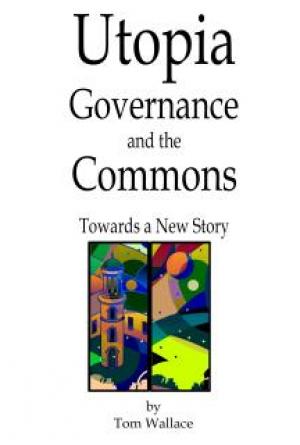Item
Cost (£m)
Scottish Payments System
£30
Mortgage Redemptions and
£200
Transfers
Currency Introduction/ATM
£10
modifications etc
Currency design and production
£50
Foreign Reserve (UK assets)
£6,500
Foreign Reserves (Euro Bond Issue) £8,000
Total IT
£1,250
Customs Service
£100
Consular network
£200
Defence Materiel
£8,000
Cost of National Commission
£500
This implies that the total cost of setting up a Scottish state would be in the order of £25 billion. Where would this money come from? There would be
two sources for this – the value of inherited assets and borrowing by the National Commission (later to be refinanced as Scotland’s national debt).
The amount from those two sources would break down something like as
follows:
(£m)
Value of directly-inherited UK
£15,000
assets (approximate)
Scottish borrowing
£10,000
What this means for Scotland’s overall finances on independence day
contains too many unknowns to say much more than this. In this book it
has already been argued that there is a strong case that the start-up costs for Scotland should be subtracted from debt given that the UK is not being asked to repay the cost of setting up the same infrastructure – but Scottish citizens were asked to pay at the time as UK taxpayers. It has also only costed the value of UK assets that Scotland wants (the ‘additive’ or ‘zero’
approach to negotiations outlined in the last chapter). And as we have seen, the range of potential debt allocation methods provides for a wide range 175
How to Start a New Country
of outcomes with the highest amount being in the order of many billions
of pounds bigger than the smallest. This would effectively dwarf the set-up costs. Deriving a sensible figure on what achieving Scottish independence would ‘cost’ cannot be sensible done at this stage. The best way to put it is that by the time of independence day Scotland would have already spent all the set-up money which needs to be spent and would become a ‘normal’
nation state operating on an annual revenue basis with no exceptional
expenditure outstanding. And when that happened, the cost of its national debt would be unlikely to be substantially higher proportionately than it is at the moment – and could potentially be substantially lower.
So there is only one remaining number which it is worthwhile
considering. If we take some broad estimates about what proportion of the money spent would be spent on goods and services (including salaries) in the Scottish economy, that number easily comes to something larger than
£3 billion. The impact of that scale of economic stimulus in an economy the size of Scotland’s is substantial and could be transformational (particularly if a strategic approach is taken to procurement). And given that none of this includes the likely ongoing income derived from this expenditure (better collection of taxes and customs, profits from running a central bank) and other potential savings (refinancing debt on better terms, substantially reducing future remedial work on public IT systems), the investment in
Scotland’s independence begins to look like rather an attractive one.
176
Conclusion
The project has been a wide-ranging attempt to explain in some detail what would be involved in establishing Scotland as an independent country.
Where there are difficulties it has not sought to avoid or minimise them.
Where there are unknowns it has not tried to pretend there aren’t. It has sought to take an optimistic approach, but always tempered by realism.
What it has not sought to do is make a case for Scottish independence.
By confining its scope to the three years that would be needed to create an independent state it has not ventured much into the question of why
we would want to bother, of what benefit it would bring to the people of Scotland. That argument is for elsewhere.
However that does not mean that it is not possible to see opportunity
in the work that would need to be done. Indeed, it is hard to miss just how big an opportunity this is. To create a fit-for-purpose tax system, to have a defence system which efficiently focuses on defence rather than power
projection, the chance to fundamentally fix public sector IT, the impact of having a proper Customs and Excise system, the chance to build a humane
system of social security, the enormous injection of investment into the Scottish economy that would result, the thousands upon thousands of jobs it would create, the expertise it would bring to Scotland, the way it would effect how we see ourselves... In so many ways it is possible to see in this technical attempt to understand a transition to independence the very reasons so
many people want that independence in the first place.
Those three transitionary years will be very hard work. Success is never guaranteed and must be fought for at all times. Some will find it daunting, others exciting and inspiring. There will be a period of rapid change. These will be three years which demand much industry and energy on the part of the Scottish nation.
But they are also three years of unprecedented opportunity – a genuinely once-in-a-lifetime chance to transform the lives of an entire nation of people.
177
Sources
This book is based on the following papers as part of the Common Weal’s
White Paper Project:
Bulmer, W E (Feb, 2018). ‘Foundations for Freedom: A discussion paper on the process for establishing an independent Scotland’s constitution’.
Macdonald, G (Dec, 2017). ‘Towards a Defence & Security Strategy for an independent Scotland’.
Morgan, G (Nov, 2017). ‘Preparing Scotland digitally for independence’.
Dalzell, C (Nov, 2017). ‘Scotland’s National Bank – Central Banking in an independent Scotland’.
Murphy, R (Aug, 2017). ‘A Scottish Tax System – Imagining the Future’.
Dalzell, C (Aug, 2017). ‘Social Security for All of Us – An Independent
Scotland as a modern welfare state’.
Ryan, P (June, 2017). ‘Backing Scotland’s Currency – Foreign Exchange
Reserves for an Independent Scotland’.
Austin, B, Henderson, P (January, 2017). ‘An Independent Scotland’s Customs and Borders – Principles and Approaches’.
Common Weal (January, 2017). ‘The White Paper Project: Version 1.0’.
Ryan, P (January, 2017). ‘How to Make a Currency: A Practical Guide’.
Dalzell, C (Nov, 2016). ‘Beyond GERS – Scotland’s Fiscal Position post-
independence’.
Dalzell, C (Sept, 2016). ‘Claiming Scotland’s Assets – A discussion paper on the division of assets and debts to an independent Scotland’.
Dalzell, C (July, 2016). ‘Scottish Currency Options post-Brexit: A discussion paper’
All are available from the Common Weal library - allofusfirst.org
178







